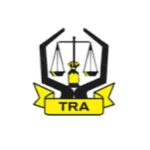Laboratory Officer II at TRA: Q&A Guide
If you’re preparing for an interview for the Laboratory Officer II role at the Tanzania Revenue Authority (TRA), this Q&A guide will help you navigate the responsibilities, qualifications, and expectations of the position.
General Questions About the Role
1. What does a Laboratory Officer II do at TRA?
Answer: A Laboratory Officer II at TRA is responsible for collecting and analyzing samples, maintaining laboratory equipment, and ensuring safety standards are met within the lab.
2. What types of samples might I collect in this role?
Answer: You may collect samples such as chemical substances, biological materials, or goods related to taxation processes, like imported products requiring quality or compliance testing.
3. Why is sample analysis important for TRA?
Answer: Sample analysis helps ensure that goods meet regulatory standards, assisting TRA in enforcing tax compliance, and protecting public safety by identifying counterfeit or hazardous materials.
4. What equipment will I maintain as a Laboratory Officer II?
Answer: You will maintain lab tools like microscopes, spectrometers, pH meters, and other analytical devices used for testing samples.
5. How do I ensure laboratory safety standards?
Answer: Ensure safety by following protocols such as wearing protective gear, proper waste disposal, conducting regular equipment checks, and adhering to TRA’s safety guidelines.
Questions About Qualifications and Experience
6. What qualifications are required for this role?
Answer: You need a Bachelor’s Degree in Biology, Chemistry, or a related field.
7. Is work experience required for this position?
Answer: The job description does not specify experience, so entry-level candidates with the required degree may apply. However, prior lab experience would be an advantage.
8. Why are English and Swahili preferred languages?
Answer: Both English and Swahili are official languages in Tanzania, ensuring effective communication with colleagues, stakeholders, and for documentation purposes.
9. Will I need to write reports in this role?
Answer: Yes, you will likely write reports on sample analysis results, equipment status, or safety compliance for TRA records.
10. Can I apply with a degree in Biochemistry?
Answer: Yes, Biochemistry is a related field to Biology and Chemistry, so it is a suitable qualification for this role.
Questions About Duties and Work Environment
11. How often will I collect samples?
Answer: The frequency of sample collection depends on TRA’s workload, but it could be daily or as needed, depending on incoming goods or inspections.
12. What happens if equipment breaks down?
Answer: If equipment breaks down, you will report it to your supervisor, arrange for repairs, and ensure backup tools are available to prevent delays in your work.
13. Will I work alone or in a team?
Answer: You will likely work in a team with other lab officers, supervisors, and TRA staff involved in customs and taxation duties.
14. How do I handle hazardous samples?
Answer: Handle hazardous samples by using protective equipment, following disposal guidelines, and correctly labeling samples to minimize risks.
15. What’s the most challenging part of this job?
Answer: Maintaining accuracy in analysis under time pressure and handling complex or delicate equipment could be challenging aspects of the role.
Performance and Career Growth
16. How is performance evaluated in this role?
Answer: Performance is evaluated based on accuracy of sample analysis, equipment upkeep, and adherence to safety standards.
17. Are there opportunities for career growth?
Answer: Yes, excelling as a Laboratory Officer II could lead to promotions, such as moving to Laboratory Officer I or into supervisory roles within TRA.
18. Will I need to train others in the lab?
Answer: There may be opportunities to train new staff or share your expertise on equipment use and safety protocols.
Practical and Technical Questions
19. How do I stay updated in this role?
Answer: Stay updated by attending training sessions, reading scientific journals, and following TRA updates on lab standards and tax regulations.
20. What’s a typical day like for a Laboratory Officer II?
Answer: A typical day involves collecting samples, running tests, recording data, maintaining equipment, and ensuring the lab is safe and organized.
21. Will I interact with taxpayers or importers?
Answer: Indirectly—your analysis supports decisions that affect taxpayers or importers, but direct interaction is unlikely in this role.
Handling Challenges and Specialization
22. Can I specialize in a specific type of analysis?
Answer: Yes, with experience, you may specialize in areas such as chemical composition or biological testing, depending on TRA’s needs.
23. How does TRA use lab results?
Answer: Lab results help inform tax assessments, verify the authenticity of goods, and ensure compliance with import/export laws.
24. How do I prepare for the interview?
Answer: Review lab techniques, safety protocols, and understand TRA’s role in revenue collection. Be prepared to discuss any projects related to your degree.
25. What if I don’t speak Swahili fluently?
Answer: Basic proficiency in Swahili is helpful, but fluency in English may suffice as it is widely used in technical roles at TRA.
This Q&A guide is designed to help you prepare for the Laboratory Officer II role at TRA. By familiarizing yourself with the duties, qualifications, and work environment, you’ll be ready to demonstrate your expertise and suitability for the position. Good luck with your interview preparation!



